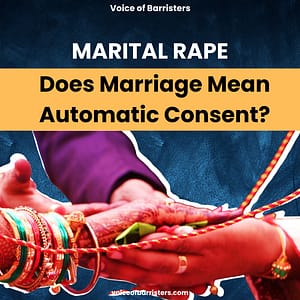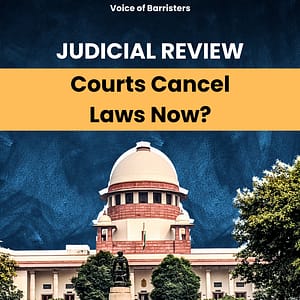Law connected with hate crimes and their nature
5 min read
Meaning :-
Any action or act of omission that constitutes a misdemeanour and is punishable in accordance to law constitutes a crime.
Extreme intense detest to the extend of animosity is hate and an unfortunate amalgamation of the two constitutes a “Hate Crime”
The hate crimes are committed with a preconception or rather should we say a misconception based on caste, creed, religion, sexuality or ethnicity which does not necessarily rise out of hatred for an individual but for an unwarranted indigestion for a certain sect of the society to which they belong.
Hate crimes are not a new form of bigotry that have mushroomed in the modern era, but, have been taking place since the ancient times where the Romans prosecuted Christians, the Mughals destroyed Hindu forces in India, and the British destroying India in itself. It didn’t just stop there, but, trickled down to the 1900’s too. One of the prime and most heinous example of hate crime is the slaughter of the Jews by the Nazi Germans in the 1940’s.
Misuse of Hate crimes :-
The heavy burdens on the Indian courts and the lack of adequate representation, leads commoners to giving into the hate crimes as they all are, in a way, “protected” by the unfortunate delays in hearing of cases by the court thereby resulting in a long due and overstretched justice. “There are two consequences of this amalgamation of religion, politics and public administration. First, it has given prominence in public life to religious leaders like “sants” and “mahants”, “imams” and “priests”. They have started playing an active role in governmental decision-making. The interference of religious leaders in administrative matters can prove dangerous to India’s secular democracy”. [1] The war for power inter and intra countries usually leads to the commoners being exploited for the benefit of the ones above them, who use “God” as their weapon. Jihad & hatred towards Muslims by the Hindus of this country is a result of mass indoctrination which leads to linear thought processes. If religion is not enough of a weapon, they bring in castes and sub castes and even if that is not enough, they all turn to “colour” because no matter what, the world will always be obsessed with the “white skin tones”. One can take a look at Apartheid, the reason why Black lives Matter Movement was triggered and the proliferation in the sales of whitening creams in India due to its post – colonial hangover, as perfect examples of the colour based discrimination faced by individuals all over.
India and it’s relation with crime :-
As explained above, such crimes have not been foreign to India. In fact, in the recent times, India has seen an uproar in their intolerance towards certain sects of the country. The “Unity in Diversity” slogan, many a times, has been shaken by certain unlearned individual’s hatred for others, like, discrimination faced by the LGBT community, the tribals and the Dalits, to list a few.
India is the world’s largest democracy and has always emphasized on the importance of “equality” amongst all of their citizens. Getting jobs wasn’t limited to men and even women could go out and take up jobs immediately after the independence. This was prominent even before the independence. “In 1946, when the Constituent Assembly of India was elected, 15 seats went to women and they also helped in drafting the new constitution. In 1947, the parliament agreed in principal about the universal suffrage.” [2]
To uphold its status of justice and equality, the country has multiple laws that have been drafted against discrimination and hate crimes and punishments have been prescribed for the same.
Laws against the crime :-
Though the term is nowhere mentioned in any statute its varied forms are explained and described in various laws. The Indian Penal Code (IPC) under Sections 153A, 153B, 295A, 298, 505(1)(c), 505(2), declares that word, spoken or written, that promotes disharmony, hatred, or insults on basis of religion, ethnicity, culture, language, region, caste, community, race etc., is punishable under law. The Representation of People Act, Information Technology Act, Unlawful Activities (Prevention) Act, 1967 and the like also contain provisions concerning hate speech and its prevention.
The laws are explained below :-
Section 153 (a) [3]
- Promoting enmity between different groups on grounds of religion, race, place of birth, residence, language, etc., and doing acts prejudicial to maintenance of harmony.
- It shall be punished with imprisonment which may extend to five years and shall also be liable to fine.
Section 505(1)(c) [4]
- With intent to incite, or which is likely to incite, any class or community of persons to commit any offence against any other class or community.
- It shall be punished with imprisonment which may extend to three years, or with fine, or with both.
Unlawful Activities Prevention Act, 1967[5]
- It aims at effective prevention of unlawful activities associations in India.
- Unlawful activity refers to any action taken by an individual or association intended to disrupt the territorial integrity and sovereignty of India.
Section 295A[6]
- Deliberate and malicious acts, intended to outrage religious feelings of any class by insulting its religion or religious beliefs. —Whoever, with deliberate and malicious intention of outraging the religious feelings of any class of [citizens of India], [by words, either spoken or written, or by signs or by visible representations or otherwise], insults or attempts to insult the religion or the religious beliefs of that class, shall be punished with imprisonment of either description for a term which may extend to 4[three years], or with fine, or with both.
Conclusion
Even though the country has come up with various laws against the crimes, it has still not defined it precisely anywhere which may lead to people unknowingly committing them. The country needs to make more definite laws and creates awareness amongst citizens and back them up with a speedy justice system,
[1] Rajkumar Singh, The use of religion in Indian politics, (July 4, 2019)
[2] Rohit Vats, Voting rights in India, (September 13, 2021)
[3] Drishti IAS, Indian polity,(March 27, 2021)
[4] Drishti IAS, Indian polity,(March 27, 2021)
[5] Drishti IAS, Unlawful Activities Prevention Act, (April 22, 2020)
[6] Anonymous, Central Government Act




